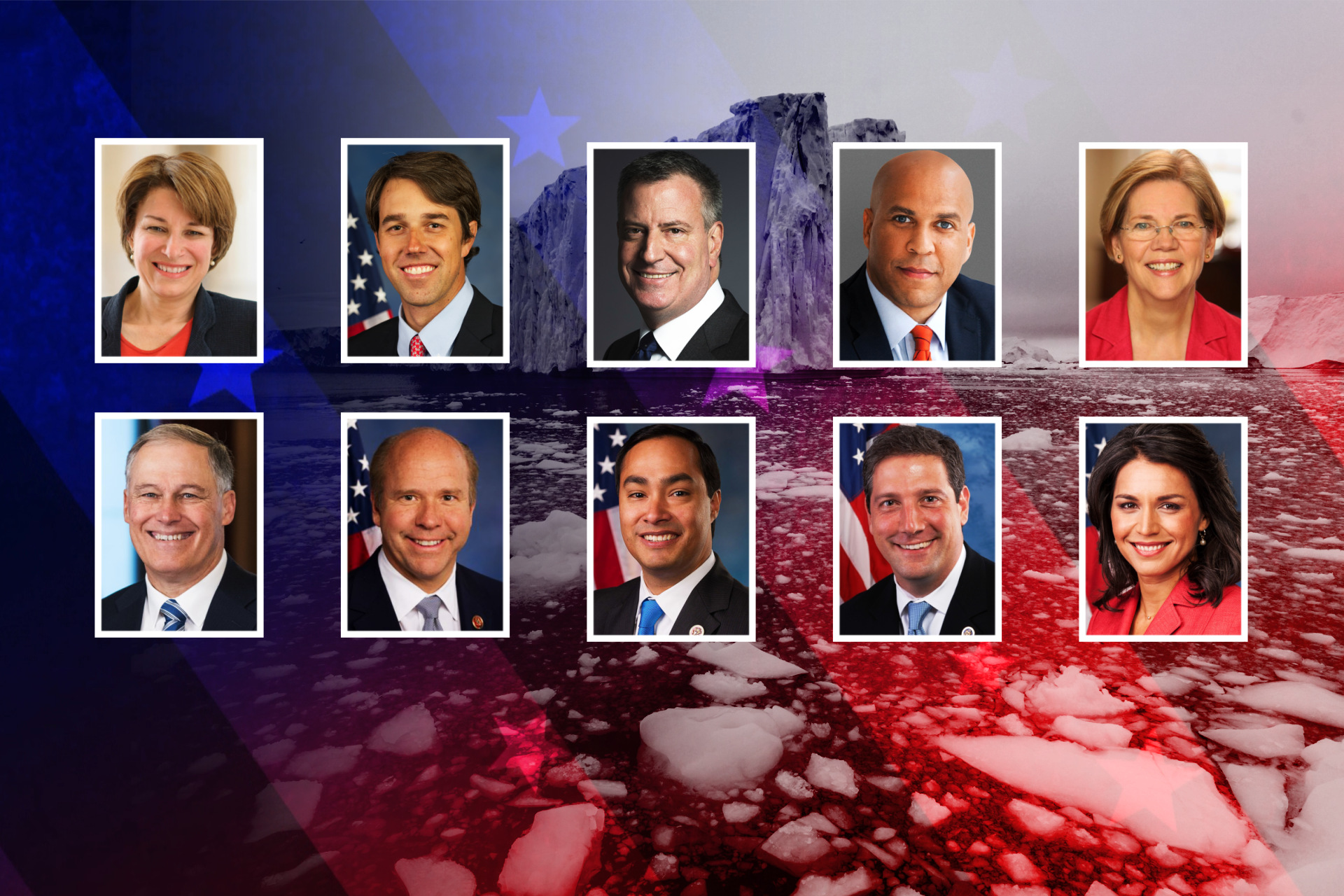UPDATED: 11:35 p.m. ET, June 27, 2019
Democratic candidates were asked about the climate crisis during the first presidential primary debates on Wednesday and Thursday in Miami, a city that is currently experiencing its hottest week in more than three decades.
The candidates who spoke on the issue all agreed that climate change needs to be urgently addressed. Several also called on the U.S. to recommit itself to the Paris Climate Agreement, which President Trump withdrew from just over two years ago.
Former Vice President Joe Biden said he would not only rejoin the Paris pact, which was signed during his administration, but “up the ante” on the agreement.
“We are the first generation to feel the sting of climate change, and the last that can do something about it,” Washington Gov. Jay Inslee said, adding that he is the only candidate that would make climate change “the top priority of the United States” and that he would create a “unified national mission” to save the planet.
Since announcing this bid for the nomination in March, Inslee has made fighting climate change his core campaign issue and was one of the first candidates to release a detailed policy plan to move the U.S. away from dirty energy sources.
Vermont Sen. Bernie Sanders slammed Trump for denying the science of climate change and said governments around the world need to stop spending “trillions on weapons and destruction,” and instead invest in fighting climate change.
Climate change is “not just happening on Arctic ice caps, this is happening in the middle of the country,” South Bend Mayor Pete Buttigieg said, detailing how his hometown has experienced unprecedented flooding in recent years. The U.S. “cannot skip a beat on climate change,” he added.

Former Maryland Rep. John Delaney praised carbon taxes as a key part of his plan to combat the issue. “This is the way forward if we are serious on this issue,” he said, noting, however, that they must be implemented properly and give “dividends to the American people.”
Recalling the deadliest wildfires in the modern history of her state last year, California Sen. Kamala Harris said climate change is an “existential threat to us as a species.” She also attacked Trump for ignoring and denying the crisis.
Several of the candidates also argued that the U.S. needs to heavily invest in renewable energy to spur economic growth in addition to combating climate change.
Former Texas Rep. Beto O'Rourke said the country needs to free itself “from dependence on fossil fuels” and proposed a plan to fund green energy initiatives.
“We should be the leaders and the owners” of the green economy, Massachusetts Sen. Elizabeth Warren said. She added that the government needs to invest “tenfold in the research and development of green energy.”
Julián Castro, the former Housing and Urban Development Secretary, touted his experience as head of a federal agency that helped provide housing to people affected by climate disasters.
Unlike the other candidates, former Colorado Gov. John Hickenlooper did not shy away from touting his experience “working with the oil and gas industry” to create environmental regulation. Author and activist Marianne Williamson called on the country to rally together to fight climate change and compared it to President John F. Kennedy’s ambitious goal of putting a man on the moon in the 1960s.
On Wednesday, four of the candidates on stage said climate change was the greatest geopolitical threat to the U.S.: Castro, Booker, Warren, and O’Rourke.













